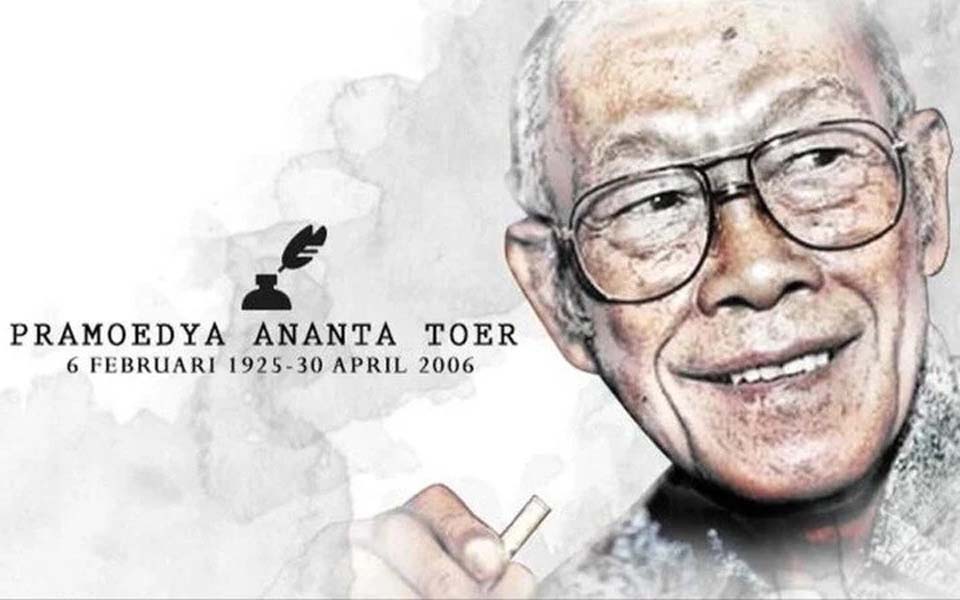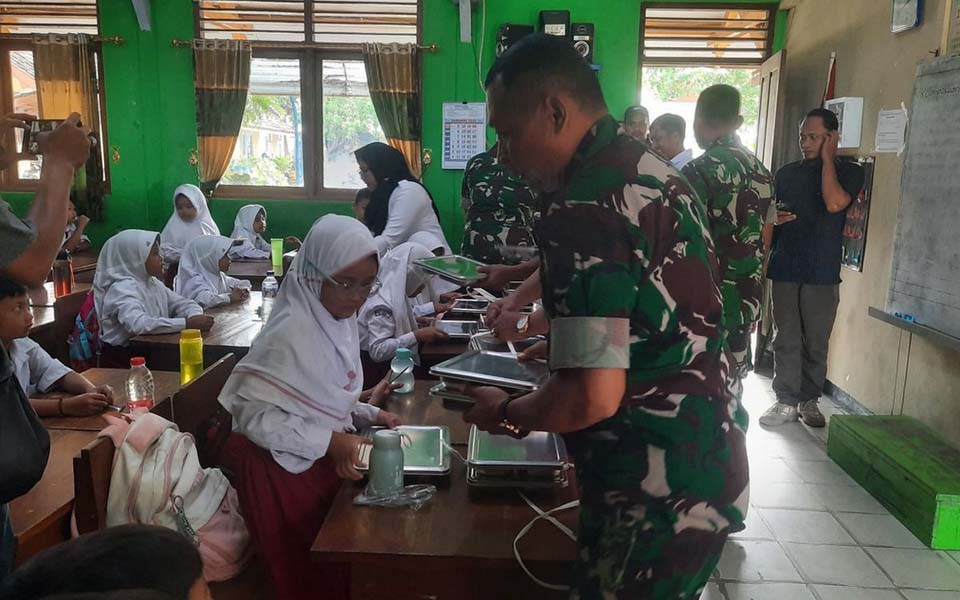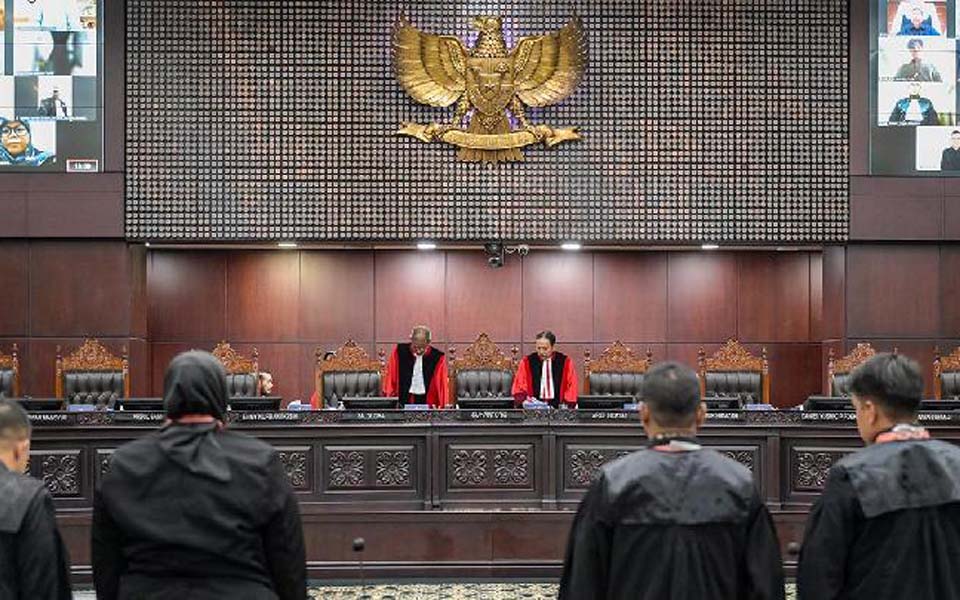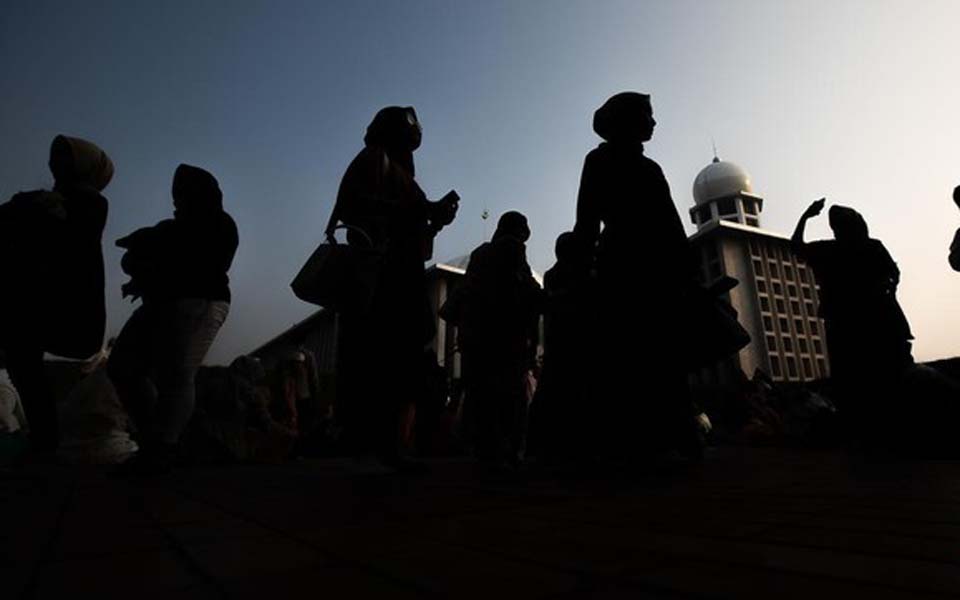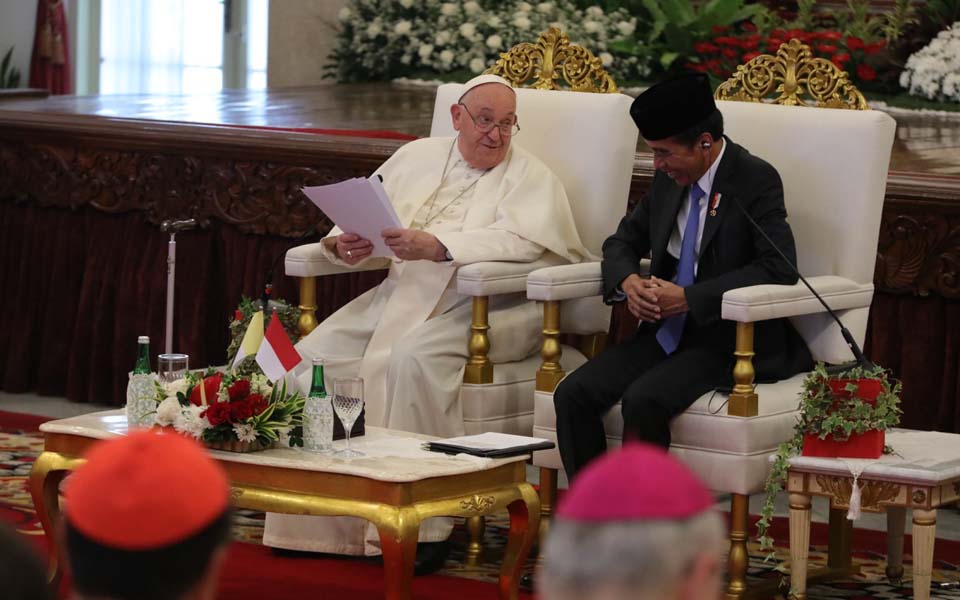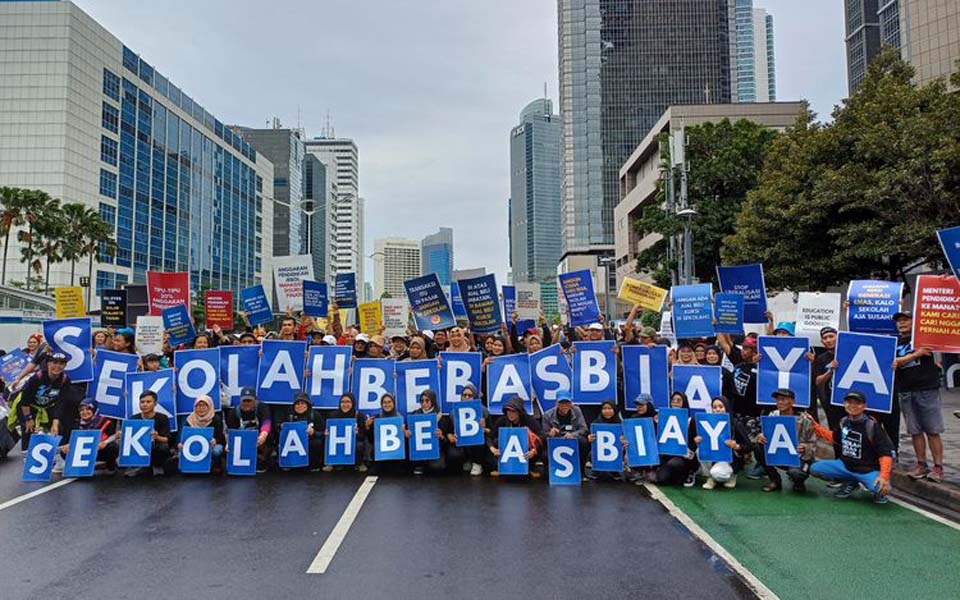Jakarta – Amnesty International Indonesia says that the government cannot just issue a joint ministerial decree (SKB) on uniforms in state schools. The decree must be followed by revoking the 2006 joint ministerial decree on establishing houses of worship.
Amnesty International Indonesia Executive Director Usman Hamid said that the recent joint decree on school uniforms is a good initial step. Amnesty appreciates the government's effort to ensure that state school students are free wear uniforms which do not conflict with their religion or personal wishes.
"But it should not just stop there", said Hamid in an official press release received by CNN Indonesia on Saturday February 6.
According to Hamid, violations of religious freedom do not just take the form of bans or requirements to wear certain uniforms, but also bans on and the closure of houses of worship.
"Violations of religious freedom are not just limited to forcing students to wear uniforms, but also cover bans on and the closure of houses of worship belonging to minority religious adherents and faiths", explained Hamid.
According to Amnesty, the 2006 joint ministerial decree has continued to be used as a justification for religious based discrimination. The decree states that new house of worship are obliged to obtain the written support of 60 local residents before they can be established.
According to Hamid, the decree clearly conflicts with the Indonesian constitution and international human rights law. "Intolerant actors feel justified by the SKB when they oppose minority [religion] houses of worship", he explained.
Hamid also said that the freedom to worship is guaranteed under the 1945 Constitution although this has not been realised because there are restrictions on the establishment of houses of worship.
"Because of this Amnesty is calling on the government to follow up this good step by immediately revoking the SKB decree [on houses of worship]", asserted Hamid.
According to Amnesty's records, in 2020 there were 40 cases of discrimination based on religion which took the form, among others, of violations of freedom of thought, belief, religion and faith.
"Eighteen of these were related to the closure, sealing off and rejection of houses of worship and intimidation against minority religious adherents and faiths", read the press release.
In January 2020, for example, Amnesty noted that a construction permit for the Paroki Santo Joseph Church in Tanjung Balai Karimun, Riau Islands, which had already been issued, was challenged by local residents. As a consequence, renovation work on the church had to be halted.
In June 29, 2020, opposition by an alliance of Islamic organisations in Kuningan, West Java, resulted in the local government sealing off a tomb built by the Sunda Wiwitan indigenous faith group.
"The seal was eventually removed after strong criticism from civil society", read the release.
According to Amnesty, Indonesia already has a legal basis to guarantee freedom of thought, faith and religion. This is embodied in the ratification of the International Convention on Civil and Political Rights through Law Number 12/2005.
It is also embodied by Articles 28E, 28I and 29 of the 1945 Constitution which guarantee freedom of belief and religion. Law Number 39/1999 on Human Rights also protects the freedom of worship in accordance with a person's faith. (iam/age)
Notes
On February 3 Education and Culture Minister Nadiem Makarim, Home Affairs Minister Tito Karnavian and Religious Affairs Minister Yaqut Cholil Qoumas signed a decree that allows students and teachers to choose what to wear in school, with or without "religious attributes". The decree orders local governments and school principals to revoke regulations that require female students to wear headscarfs in state schools.
[Translated by James Balowski. The original title of the article was "Amnesty International Minta SKB soal Tempat Ibadah Dicabut".]






